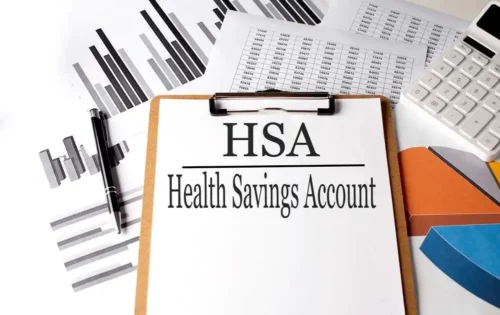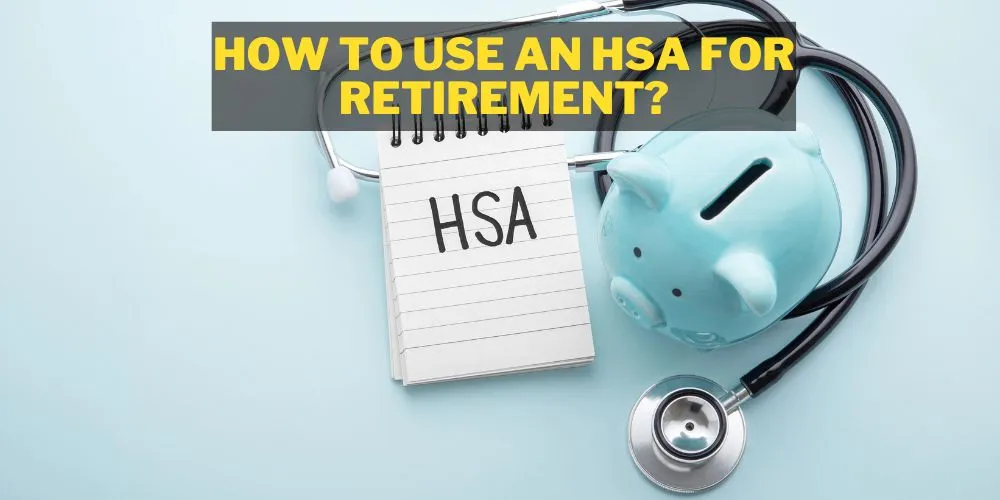A Health Savings Account (HSA) is more than just a way to cover medical expenses. When used wisely, it can become a vital component of your retirement planning.
This article explores how to use an HSA for retirement to ensure a financially secure future and manage healthcare costs once you retire.
Understanding HSAs
Eligibility and Contributions
To open an HSA, you must be enrolled in a High Deductible Health Plan (HDHP). Each year, the IRS sets limits on how much you can contribute.
For those 55 and older, there’s a catch-up option allowing additional contributions, helping increase savings as retirement nears.

Tax Benefits
Contributions to an HSA are pre-tax, meaning they reduce your taxable income. The funds in your HSA grow tax-free, and withdrawals for qualified medical expenses are also tax-free. These benefits make HSAs a triple tax-advantaged saving option.
HSA vs. Traditional Retirement Accounts
HSAs offer unique advantages over traditional retirement accounts like 401(k)s and IRAs. While all provide tax advantages, HSAs are the only accounts offering tax-free withdrawals for qualifying expenditures.
This can provide significant savings, especially since health care costs often increase with age.
How To Use An Hsa For Retirement?
Prioritizing Contributions
It’s wise to balance your contributions to both HSAs and other retirement accounts. By funding your HSA fully, you prepare for future medical costs while reducing your current taxable income.
Investing HSA Funds
Many HSAs offer investment options like mutual funds or stocks. Investing your HSA funds can significantly increase their value, particularly if you start early and retirement is years away.
Risk tolerance and time until retirement will guide whether you choose aggressive or conservative investments.
Saving Receipts for Future Withdrawals
A savvy strategy involves paying out-of-pocket for current medical expenses and saving your receipts.
In retirement, you can reimburse yourself using your HSA funds, potentially years later. This allows your investments more time to grow.
Planning for Medicare and Other Healthcare Costs
Understanding how HSAs work with Medicare is crucial. Funds can be used to pay for premiums, copays, and deductibles.
Planning how to use these funds can minimize out-of-pocket expenses once Medicare kicks in.
Withdrawing HSA Funds in Retirement
Qualified Medical Expenses
HSAs cover a range of medical expenses, from doctor visits and medications to dental and vision care.
Familiarizing yourself with eligible expenses ensures you use your funds properly and avoid taxes.

Non-Medical Withdrawals
After age 65, you can make withdrawals for non-medical purposes without facing penalties, though these withdrawals will be taxed as income. This flexibility makes HSAs a valuable resource in retirement.
Estate Planning Considerations
In the event of your death, an HSA can pass to your spouse tax-free. However, other heirs would face taxable income.
Proper planning ensures your HSA supports your beneficiaries efficiently.
Pro Tips for Maximizing HSA Benefits
Maximizing the benefits from your Health Savings Account (HSA) hinges on smart contribution and withdrawal practices.
To enhance HSA’s value, always aim to hit the maximum contribution limit. This strategy grows your funds quickly and expands potential tax savings.
On the withdrawals side, strategize to pay out-of-pocket for medical expenses if possible, allowing your HSA funds to accrue interest longer.
Additionally, staying updated with changes in relevant laws ensures you adapt your strategy to benefit from any new advantages or avoid pitfalls.
For personalized guidance, engaging a financial advisor who specializes in HSAs is wise.
They can integrate HSA planning into your broader financial and retirement strategy, ensuring cohesiveness across your financial endeavors.
Commonly Asked Questions
Can I use my HSA for retirement if I haven’t had high medical expenses?
Yes, you can. Your HSA can fund future medical expenses or be used post-65 for other needs, although non-medical withdrawals may be taxed.
What happens to my HSA if I don’t use it by a certain age?
There are no mandatory withdrawal rules for HSAs like there are for 401(k)s and IRAs. The funds can continue to grow tax-free.
How does contributing to an HSA impact my eligibility for a Roth IRA?
HSA contributions do not affect your eligibility for a Roth IRA. You can contribute to both if you meet the respective requirements.
Are there penalties for using HSA funds for non-medical expenses before retirement?
Yes, withdrawals for non-medical expenses before age 65 incur a 20% penalty and are also taxed as income.
How do I choose the right investments within my HSA?
Consider your timeline to retirement and risk tolerance. Diversified portfolios often balance risk and growth effectively.
Conclusion
An HSA is a powerful tool in retirement planning. By understanding and utilizing the full scope of its benefits, you can ensure that it serves you well, both now and in the future.
Make your contributions with an eye to the long term, and consult with financial professionals to tailor your approach to your personal financial situation.


 Tags:
Tags:










